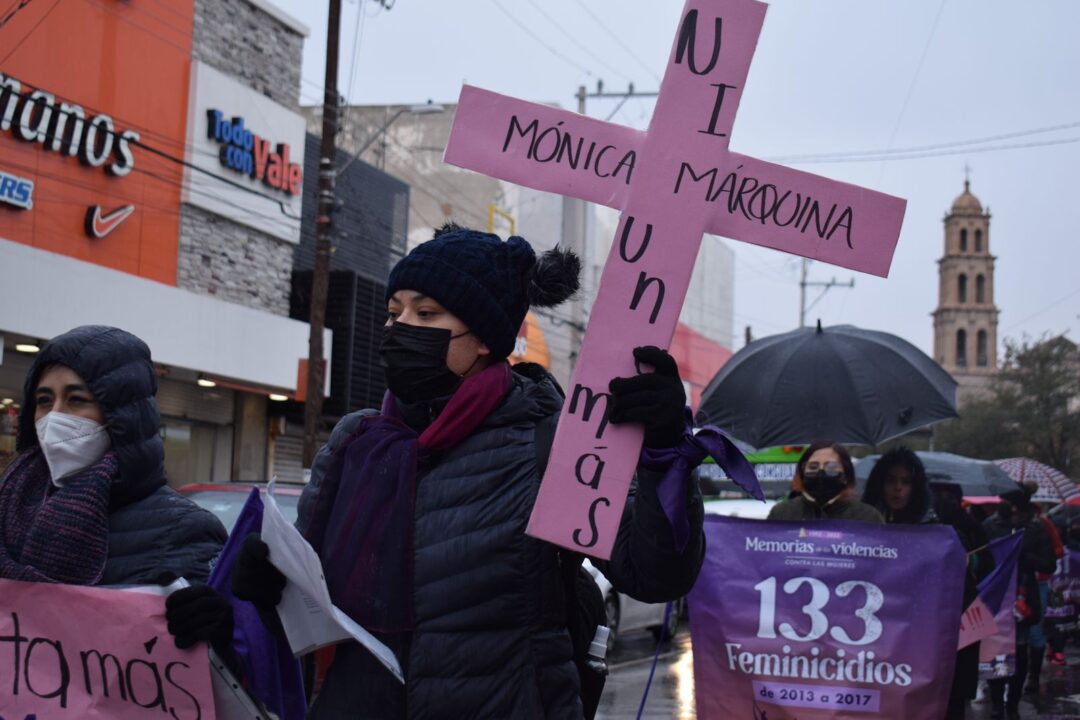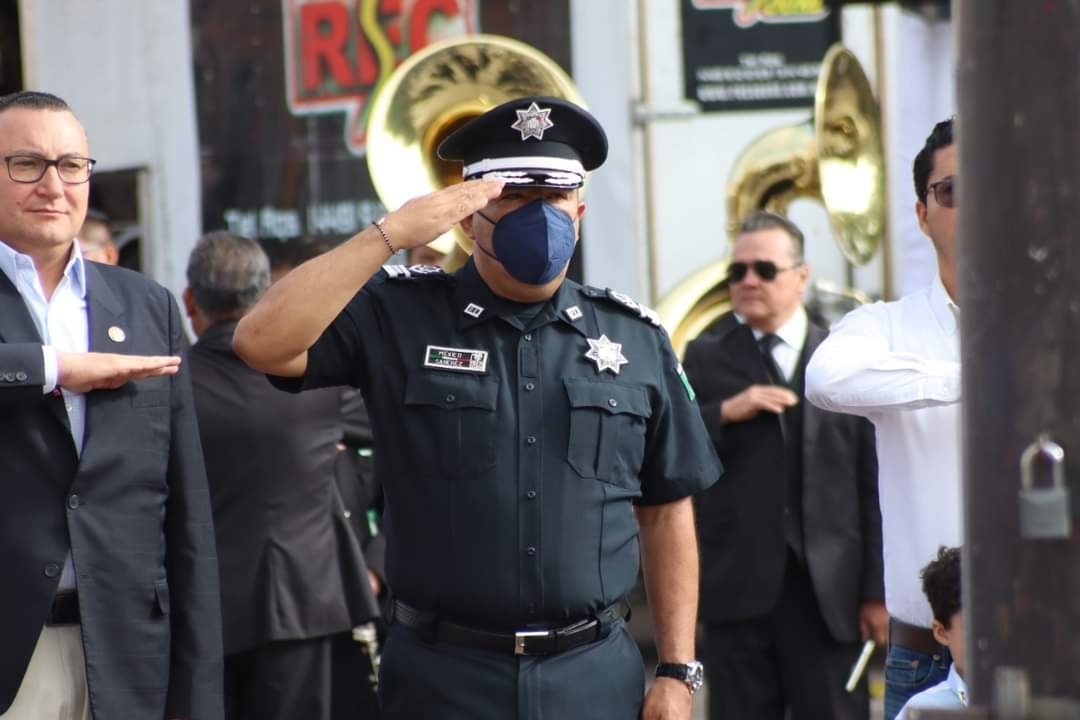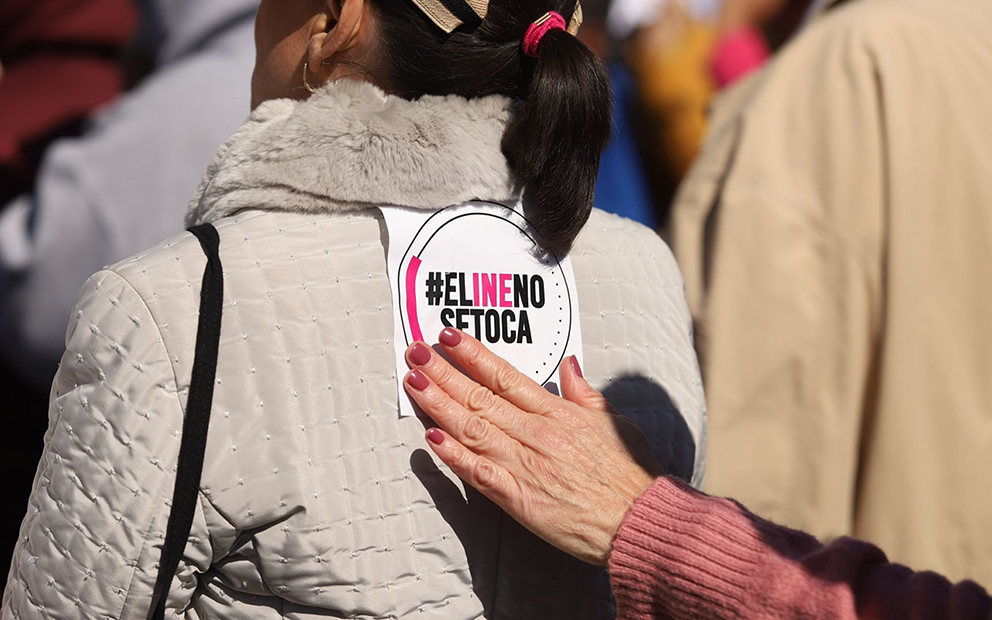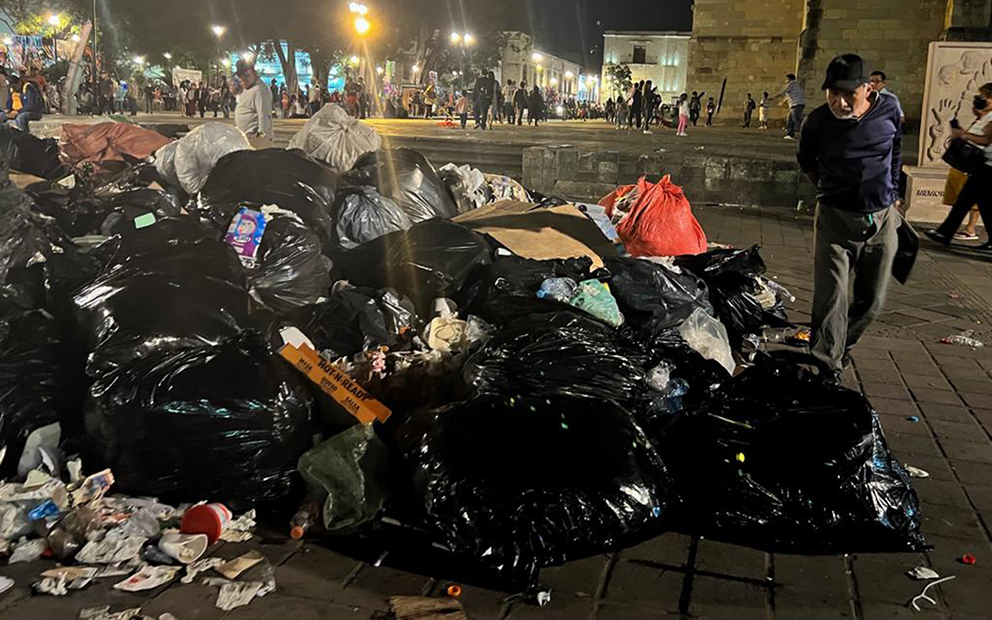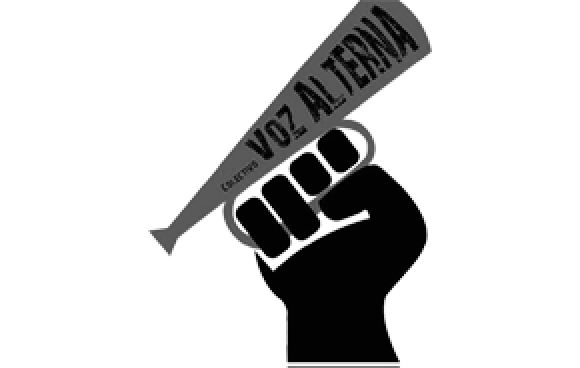In the P’urhépecha Plateau, communal identity resists the party system
4 junio, 2021
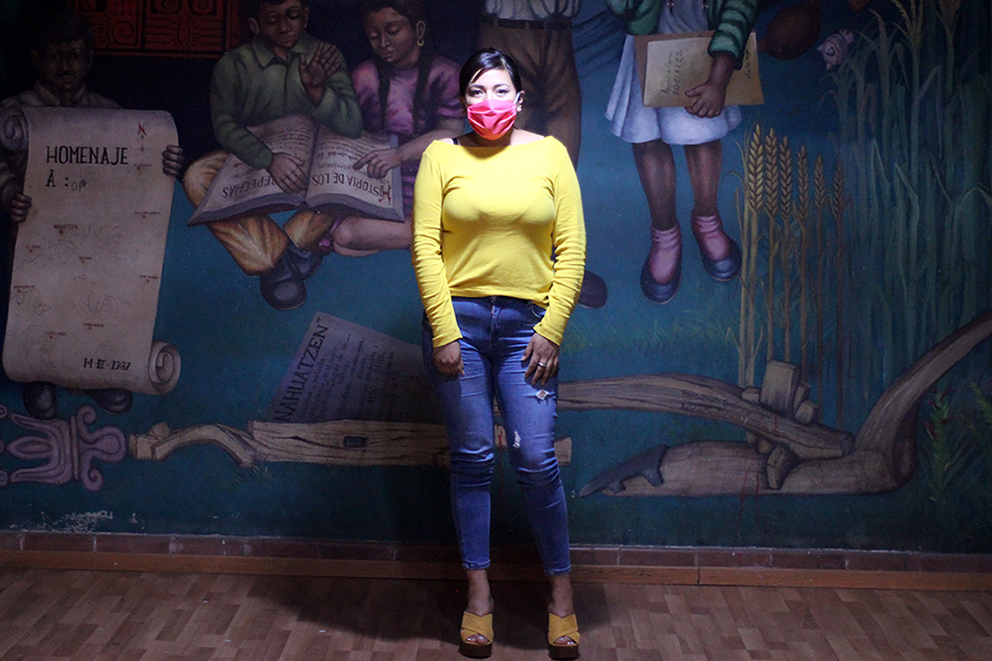
Ten years after Cherán expelling politicians and organized crime, the way they elect their representatives via Indigenous customary law keeps their identity. But the neighboring community of Nahuatzen has opened space for the return of political parties and the end of Indigenous autonomy
Text and photos: Arturo Contreras Camero, originally published May 27, 2021.
Translation: Dawn Marie Paley.
MICHOACÁN– Cherán and Nahuatzen are separated by around 10 kilometers, one can walk from one to the other on foot. On May 23, these two municipalities in the P’urhépecha plateau in Michoacán renewed their governments via customary law. The processes in both communities are remarkably different, and point to some of the difficulties in organizing and maintaining community governance.
In Cherán, the desire to keep political parties far from community organization, which is rooted in the belief systems of residents, stayed on track despite low participation levels because of the pandemic, and amid complaints of bad management of the health crisis and incapacity in the face of signs of insecurity.
In Nahuatzen, the autonomous process has just turned four and it has been marked by a conflict between the Indigenous Governance Council and the representatives of the political parties. It appears the population is trapped in the middle, tired of the violence of the confrontation, they have mostly stopped participating.
In what follows, we’ll describe both processes of governmental change.
Cheran: Against political parties, communitarian identity
Luisa Campur holds up her scarf to protect her face from the sun. The midday rays fall like lead, but they don’t stop Luisa from doing her job. Luisa gives sanitizing gel to each person who enters the federal secondary school in Cherán. She is part of the committee that oversees her neighbourhood, which is why she was called upon to help organize the assembly to designate the new councillors, which is about to begin.
“I was born in ‘52, and since I was born, the parties ruled here,” she said, tipping her hat. “I think what we’re doing is good, because now the other parties can’t interfere. Yes, it is a good thing.” Later she explains the system to organize the fires (one on each street) where the neighbours gather to make organizational decisions; which are taken to neighborhood assemblies and then to the High Council, which is made up of three representatives from each neighborhood.
Minutes later, from behind the microphone, a voice announces the following to the hundreds of people gathered in the school grounds “May the unity and the voice of the people be applied in Cheran Keri, the Great Cherán. Justice and land restitution.” The words mark the beginning of the assembly. Here, like in the other four neighbourhoods, the school grounds appear full, but participation has dipped compared to previous years.
“The participation of the youth was decisive 10 years ago, but now it’s very lax. It’s like they’ve forgotten that it was participation that served to get the cartels out,” said Daniel Romero, a 36 year old lawyer who served on the first Honor and Justice Council.
In total, 2,500 people in Cherán participated in the change of the High Council. In the assembly of the third neighborhood there were more than 700 people. Regardless, one of the people responsible for registering participants said they were expecting at least 3,000.
“It’s been 10 years and we have yet to move forward in some aspects, but we accept that,” said Daniel, in his analysis of the last decade of autonomous government. “After all, we have been in a learning process, but one of the things that is lacking is true planning, the councils support immediate necessities and a medium-term project has yet to be firmed up.”
Daniel doesn’t see the interference of political parties as a threat, but he is sure that if the next council doesn’t do a better job, the autonomous government could face a substantial loss of representativity.
The biggest threat is internal. I think that our failures, and the failures of our processes, are the most serious enemies we face.
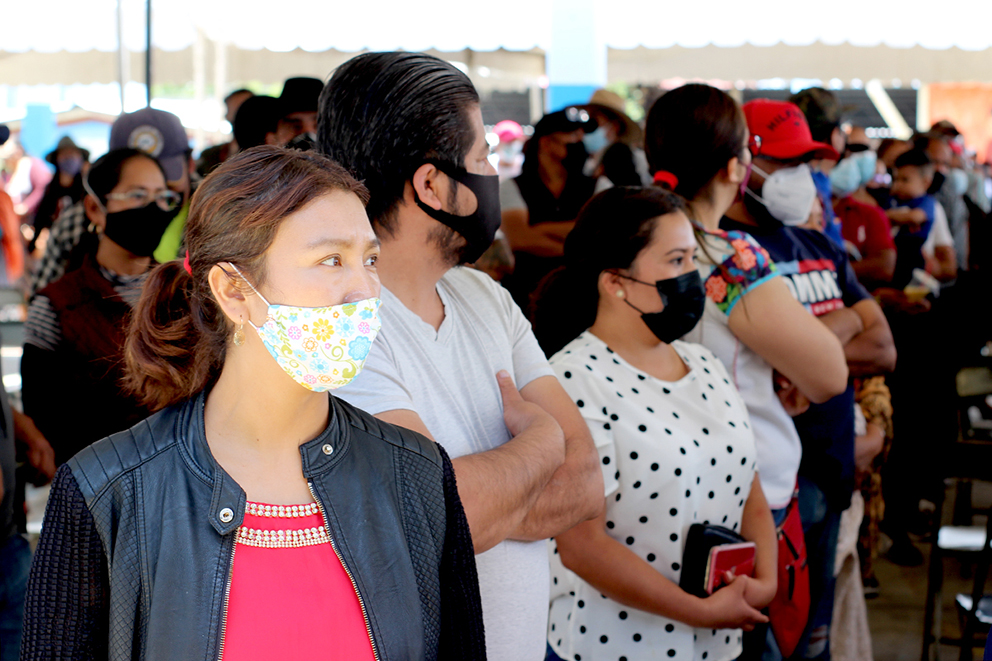
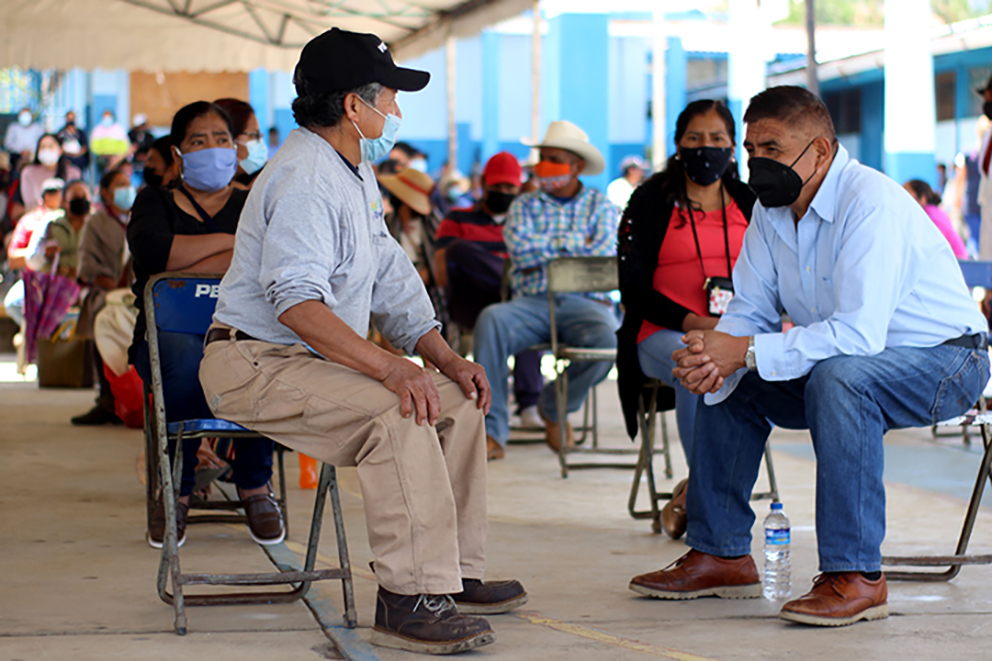
A decision from deep inside the community
In order to be part of the High Council of Cherán, or to be Keri, as they say here, you must be over 45 years old, have been active in serving the community, and be nominated by the same (you can’t campaign to be Keri, or ask to be nominated). During the last changes in the council, these discussions took place at all of the fires in each neighborhood one week before the assembly. This year, though, it seems like the process was sped up, with only one day between the fires and the day of the neighborhood assemblies.
On Saturday night, Cheran’s central square was buzzing with people out to drink an atole and kids playing with large, pencil shaped balloons that they launch skyward and try to catch on their way down. Hours before, each neighbourhood met to decide the conditions for the election of the Keris and to discuss who will be the next popular representatives.
After the assembly in their neighbourhood, Yunuen Torres Asencio, who was part of the Youth Council and who continues to be very active in communitarian activities, agrees that the autonomous government has become worn down over the past decade.
“At first the needs were really different, during the first council it was security that was the most important issue and it was known there was going to be trials and errors. In the second things were more looked after, but in the third there was a kind of comfort and carelessness, the issue is feeling comfortable,” she said.
“10 years ago I didn’t imagine this, the context was very difficult, for women and young women especially. The issue of harassment by people from outside the community was really strong then. The bad guys, the illegal loggers, and the other police made us feel unsafe.” This feeling, she says, was shared among all of the young people.
There was a curfew and if you went out it was on you; it was as if the police had the right to question you just for being in the streets. It made us very uneasy. Around then certain things we had heard about in the news growing up started happening: kidnappings, extortions, we didn’t really understand it until it started happening. It wasn’t normal, it was all a symptom that something was wrong. Among youth, it all translated into the fact that we had no political participation beyond turning 18 and becoming targets for the political parties seeking to buy our vote.
Fed up with this situation, residents sprang into action, organizing brigades and lighting fires in order to watch over each street and stop the illegal loggers and organized crime. Since then, the same social organization has shaped the political life of the town.
A fight for the future
In the first neighbourhood, a 50 year old woman accompanied her parents to the assembly. She didn’t want to give her name, for fear that her opinions could cause problems in the town, even though what she shared didn’t seem particularly controversial.
“Some people say we’re going backwards, because we have an Indigenous government, but in reality I see more youth participation. This movement is for them. When all of this began, we had to lay a foundation to carry forward and to allow them to continue this form of government,” she said. “There are some people who say they want to go back to the party system, but it’s only for the money, for the corruption and for the privileges. They’re the ones who say [our current system] is backwards.”
In Nahuatzen, years of conflict presaged the return of parties
In the neighboring community, public turnout to delegate the new Governing Council was even lower than in Cherán. Here it’s not the pandemic that has kept people away, rather the fear of getting injured. Two weeks ago, members of the political parties attacked the communal house, which is the council headquarters. That was the last of the aggressions in a sustained conflict between those who defend Indigenous governance and those interested in the return of political parties.
A week earlier, in the neighborhoods of this town, internal assemblies were held to elect new governing councillors. It was the second such vote since 2017, even though the initial promise was that a change in representation would happen every year.
The weekend ceremony consisted of the presentation of the new council in the town square. This should be an event that brings out the whole community, however, in a town of 12,000 people only around 500 arrived to the plaza. Their opponents, who are from the political parties, say there weren’t more than 100.
“Initially when we elected our council there were more than 4,500 signatures, and we thought we had a solid movement,” said Roberto Velázquez, one of the recently elected councillors. “Today we had good attendance, but not what we had hoped for, because of the threats from the political parties. On other occasions we’ve had three times as many people at these events, but given the presence of the National Guard, which shot at us twice, it’s hard. People are scared, but our organization does include the whole community,” he said.
This community began to undertake its path to autonomy in 2015, after the municipal government introduced a cocktail of security forces into their town made up of municipal police, state police, and others who came from out of state. That mixture, far from calming insecurity, opened the door to police abuses carried out in open cooperation with criminal gangs.
In addition, in those years, with little institutional support and in the context of ongoing mismanagement, a group of citizens began to question the low budget execution, according to Miguel Paleo, another recently elected councillor.
“Far from taking steps forward on infrastructure and development in the town, we were ignored by the political parties. We decided to take up the task of seeing how much of the budget was being spent, because we didn’t see it reflected in the streets. It was 39 million pesos, which we never saw. Then we made the salaries of public servants public and the numbers were offensive, they were keeping people happy with food assistance and small gifts.”
After numerous attempts, in 2017 the Electoral Tribunal of Morelia (the capital of Michoacán), recognized the right of Nahuatzen to govern itself by way of traditional customs, which led to the creation of their first council. Regardless, the party system counterattacked through control of the budget.
“The state didn’t like it,” said Roberto Arriola, one of the first councillors who recently left office. “During our term we couldn’t do what we should have done in the community because we couldn’t work due to criminalization, because they blocked the budget. We affected their economic interests, and in turn they used many means to put an an end to the new authority that was being built.”
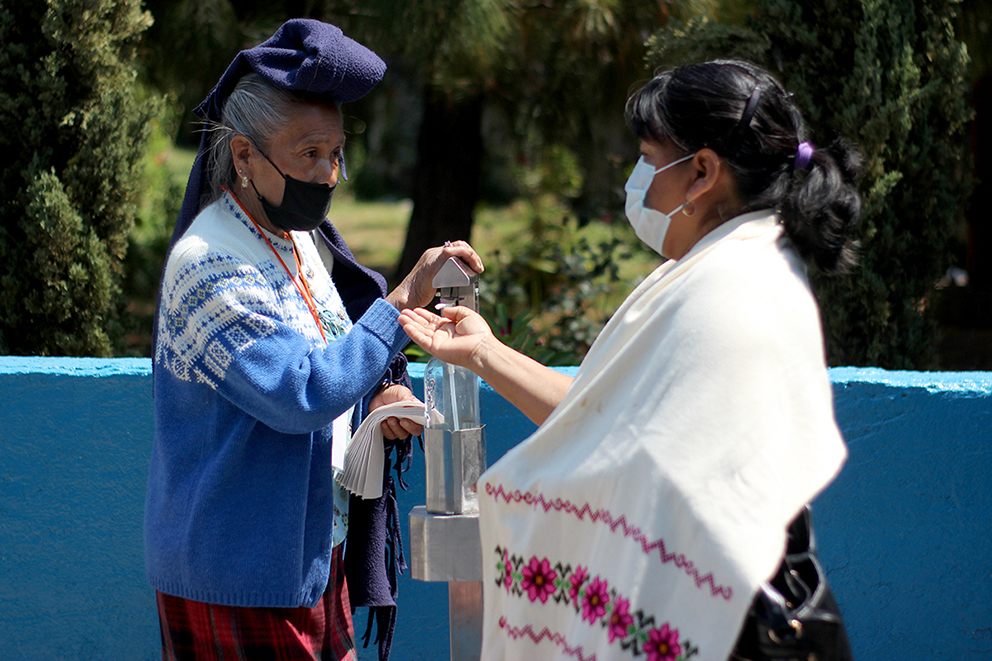
Nahuatzen: Parallel governments in conflict
Under the pretext that the Council didn’t have legal authority to spend the budget assigned to the community, the state government held back the resources corresponding to the town. In the face of the conflict, the Electoral Institute of Morelia called for an assembly to decide who would govern the town.
People from other communities arrived at that assembly and said they belonged to Nahuatzen; it was decided there that the Council would be a supervisory organ for the execution of the budget, and that a new government organ would be created. But in reality, the result only led to more conflict between two sides who both claim they have the right to lead the community.
In an attempt to have the government release the budget corresponding to the community, the Council kicked off a series of protests. According to the residents of Nahuatzen, that led to extreme violence, though the members of the Council say it was they who were criminalized.
“That’s why I disagree with traditional customs, and with the council,” said one market vendor in the town, who –like the others I interviewed for this story– asked that I not use her name, out of fear of retribution from one of the two sides.
“Since they took control of the town, it’s impacted vendors the most. People used to come from the rural areas and other areas to buy and sell, but not anymore; companies like Bimbo and Coca-Cola stopped coming, because they would burn their trucks and prevent them from entering,” she said.
Unlike Cherán, where Indigenous identity plays an important role in social cohesion, in Nahuatzen many people don’t consider themselves to be part of an Indigenous community, which depletes the cohesion and legitimacy of the council.
“That’s why we don’t want an Indigenous Council here. This isn’t a P’urhépecha town, we aren’t Indigenous, unlike other communities in the municipality, we don’t speak a dialect,” said another resident, who said he was in favor of political parties.
This is nearly the same argument made by Mayra Morales, who was named interim mayor to substitute David Otlica, elected in 2018 in a vote marred by the burning of ballot boxes and other incidents. In those elections, clashes prevented Nahuatzen from carrying out elections organized by the National Electoral Institute, even though they were carried out in other parts of the municipality.
Mayra Morales works out of the local municipal building, right in front of the town square. The building is old and unused, there is no furniture and most of the offices are empty. Her and her team work in one of the offices. They all use the newest cell phones and wear branded clothing. The interim president, who is running for the same office she holds, has a brown leather purse with golden decorations and the initials CK stamped all over it. Other members of her team wear jeans and dress shirts. Their shoes and belts look fancy, and appear to display the Ferragamo logo, a luxury brand.
“Here we have nine communities, four are Indigenous,” repeated the interim president in an interview. “They are Comachuen, Arantepacua, Sevina y Turícuaro, they are Indigenous, but here we never spoke a dialect or wore traditional clothing,” she said, to disqualify the legitimacy of the council.
Tension, elections and a change of council
As Mayra and the rest of the people who support the eight political parties that are waiting for the elections on June 6th in hopes of returning back to the party system of government, council members are seeking some way of preventing elections in the town.
We want to go the legal route and not use force, which is why we want to avoid the installation of voting booths,” said Miguel Paleo, one of the new councillors. “The parties say that all citizens have the right to vote and be voted for, but in reality [it’s not like that], we want democracy, but not that imposed by the parties.”
“Thank god that in these upcoming elections Nahuatzen isn’t walking alone. We are together with Arantepacua, Sevina, Comachuen and Turícuaro, which are our communities, the largest of the nine, this means more than 80 percent of the population doesn’t want elections [in the party system],” he said. The communities he mentioned have begun similar autonomous processes to Nahuatzen over the past few years.
Outside, in the streets of Nahuatzen, the polarization seems to strike fear into citizens, like an electrician I spoke to who had lost faith in both of these forms of electing government.
“Unfortunately things are bad, and have been bad on one side and on the other. On the one hand, part of the Council started to work well at the beginning and was elected by the people, but unfortunately it began to turn into a violent group that began to act in an authoritarian manner. One thing, for example, is that they were supposed to change the council every year, but after a year they didn’t leave and they didn’t accept that others wanted to participate. They simply did not want to leave. That’s why, because of the confusion and seeing that things were that bad, I’ve decided not to support the council, which seems like a band of vandals, but I won’t support the parties either, they are a self-anointed group. They ignore us, they leave us orphaned, as if Nahuatzen was a town without law.”
Arturo Contreras is a journalist on a constant journey to find the best way to tell each story, and in this way do a service to citizens. He analyzes databases and make graphics, and tells of experiences in a way that makes sense of our reality.
Click here to join Pie de Página’s bi-weekly English newsletter.
Ayúdanos a sostener un periodismo ético y responsable, que sirva para construir mejores sociedades. Patrocina una historia y forma parte de nuestra comunidad.
Dona

